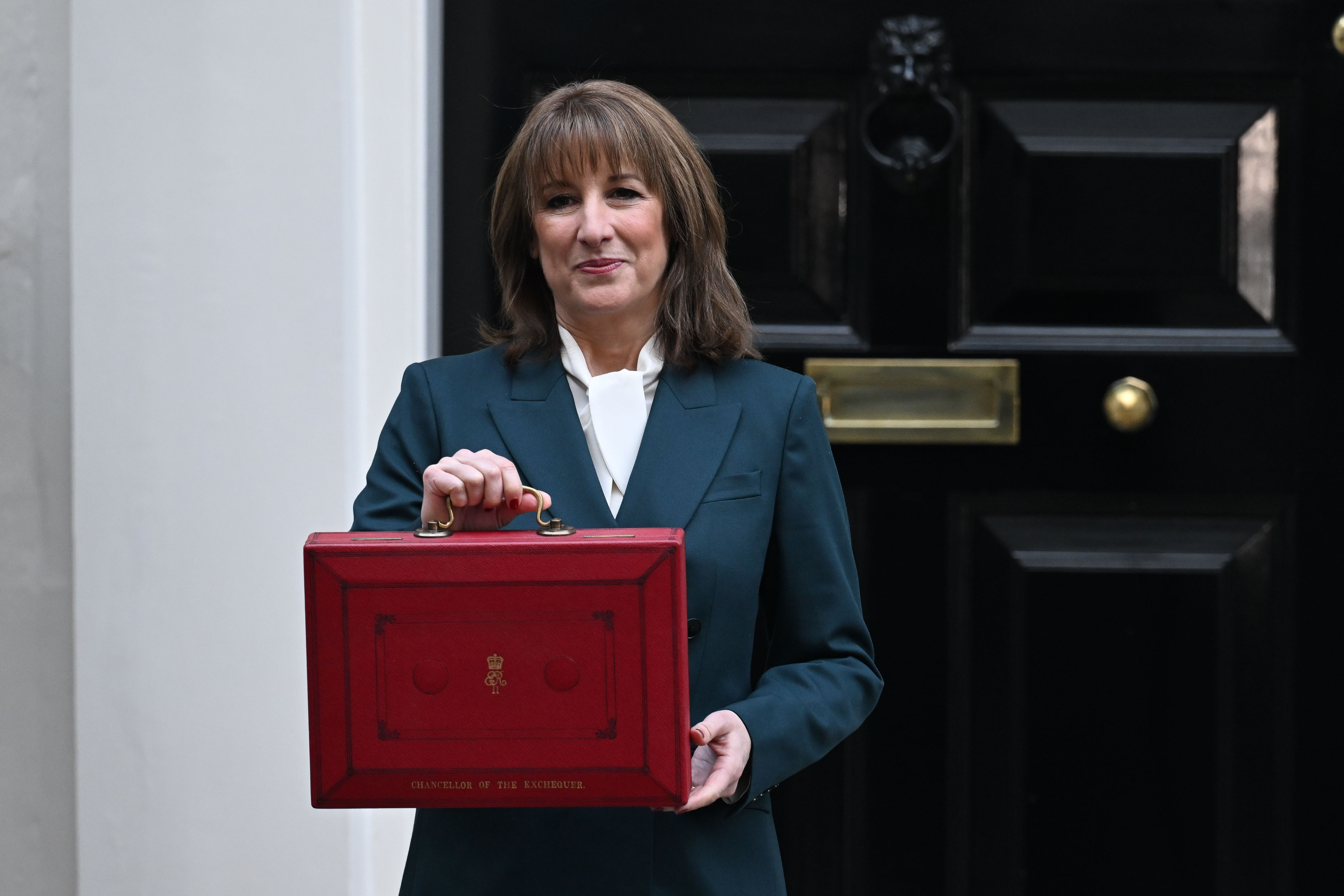Rachel Reeves confirms cash ISA allowance changes – are you affected?
Chancellor Rachel Reeves has unveiled a cut to the annual cash ISA limit, potentially affecting millions of savers. What has been announced and when will the changes come into effect?


Get the latest financial news, insights and expert analysis from our award-winning MoneyWeek team, to help you understand what really matters when it comes to your finances.
You are now subscribed
Your newsletter sign-up was successful
Want to add more newsletters?
Chancellor Rachel Reeves is slashing the amount millions of savers can put into a cash ISA each tax year. From April 2027, under-65s can put no more than £12,000 into a cash ISA each tax year, down from the current £20,000 cap.
Reeves hopes the move will encourage savers to invest more of their cash.
“The UK has some of the lowest levels of retail investment in the G7, and that is not only bad for business, who need that investment to grow; it is bad for savers, too,” she said during today’s Budget speech.
Try 6 free issues of MoneyWeek today
Get unparalleled financial insight, analysis and expert opinion you can profit from.

Sign up to Money Morning
Don't miss the latest investment and personal finances news, market analysis, plus money-saving tips with our free twice-daily newsletter
Don't miss the latest investment and personal finances news, market analysis, plus money-saving tips with our free twice-daily newsletter
“Someone who had invested £1,000 a year in an average stocks and shares individual savings account [ISA] every year since 1999 would be £50,000 better off today than if they had put the same money into a cash ISA.”
However, the limit was branded “a sucker punch for savers and deeply disappointing for lenders” by Harriet Guevera, chief saving officer at Nottingham Building Society.
She added: “We support the Government’s aim to boost an investing culture in the UK, but restricting choice is not the way to do it.”
Carol Knight, chief executive of The Investing and Saving Alliance (TISA), a not-for-profit membership organisation, said: "The cash ISA has been an incredibly effective tool in encouraging saving, and there is no clear evidence that reducing the cash ISA limit will encourage more people to invest.”
Some welcomed the decision though. James Carter, head of platform policy at Fidelity International, said: "Today’s announcement marks an important step towards supporting consumers to achieve better long-term financial outcomes by creating a better balance of incentive between cash and equities – fostering a culture of retail investment.”
How will the cash ISA limit change?
From 6 April 2027, the annual cash ISA limit will be set at £12,000. This is within an overall £20,000 annual ISA allowance.
The new cash ISA cap will only affect under-65s.
There is not currently a specific cash ISA allowance. You can put a maximum of £20,000 a year into ISAs. This can be put into one type of ISA, or split across different types.
For instance, you could put some money into a cash ISA, some into a stocks and shares ISA, some into an innovative finance ISA, and, if eligible, some into a Lifetime ISA. There is a separate £4,000 per year Lifetime ISA cap.
If you put the maximum £12,000 into a cash ISA in one tax year, you would only have £8,000 of the allowance left to put into the other types of ISA.
On the other hand, if you put £12,000 into a stocks and shares ISA, you could only put a total of £8,000 into the other types of ISA that tax year.
Over-65s are exempt from the changes and can continue putting up to £20,000 into cash ISAs each year, if they wish to.
What is an ISA?
An ISA is a tax-free savings vehicle – you don’t pay tax on savings interest or income or capital gains from investments in an ISA.
There are five types of adult ISA:
- Cash ISAs
- Stocks and shares ISAs
- Innovative finance ISAs
- Lifetime ISAs
- Help to Buy ISAs (you can no longer open a Help to Buy ISA)
The annual ISA allowance is £20,000 for adults. You can put up to £9,000 a year into a junior ISA, a tax-free account for children.
The annual allowances reset each tax year, which runs from 6 April to 5 April the following year.
You can put up to £4,000 into a Lifetime ISA each tax year, provided this doesn’t exceed the overall ISA annual allowance.
Why put savings in an ISA?
ISAs are becoming increasingly important as a way of shielding money from the taxman.
Savings and investments held in an ISA are tax-free.
Outside of an ISA, you can earn a certain amount of interest on your savings tax-free, thanks to the personal savings allowance. However, frozen tax thresholds and higher interest rates mean more savers are being dragged into paying tax on their savings.
In 2025/26, 2.64 million people are expected to pay tax on their savings – up from just 647,000 in 2021/22 – according to HMRC data obtained via an FOI by AJ Bell.
In the Autumn Budget, Reeves also announced the tax rate on savings income will be hiked by two percentage points across all bands from April 2027 – meaning savers face paying even more in tax on their savings interest.
“There’s no doubt that cash ISA use will explode in the next couple of years,” Laura Suter, director of personal finance at AJ Bell said.
“As more people have faced tax on their savings we’ve seen ISAs become more popular, but the double-pronged effect of higher savings tax rates and a looming plan for cash ISAs to be restricted means savers are facing an attack on two fronts.”
Read more: How to earn over 4% on your cash… using a stocks and shares ISA
Will Lifetime ISAs be reformed?
The government addressed possible Lifetime ISA reform in the 2025 Budget document.
A consultation on the implementation of a new, “simpler” ISA product to support first-time buyers in buying a home will be published in early 2026.
Once the new product becomes available, it will be offered in place of the Lifetime ISA, the government said.
Lifetime ISA savers can put £4,000 a year into this account and get a 25% government bonus – worth up to £1,000 a year.
If you want to use the money to buy a first home, the property must cost £450,000 or less, which critics argue is too stringent.
Savers who don’t meet the withdrawal criteria face a 25% unauthorised withdrawal charge.
Get the latest financial news, insights and expert analysis from our award-winning MoneyWeek team, to help you understand what really matters when it comes to your finances.

Jessica is a financial journalist with extensive experience in digital publishing.
She was previously Digital Finance Editor at GB News and Personal Finance Editor at Express.co.uk. She enjoys writing about savings, pensions and tax, and is passionate about promoting financial education.
-
 Review: Pierre & Vacances – affordable luxury in iconic Flaine
Review: Pierre & Vacances – affordable luxury in iconic FlaineSnow-sure and steeped in rich architectural heritage, Flaine is a unique ski resort which offers something for all of the family.
-
 Could you get cheaper loans under ‘significant’ FCA credit proposals?
Could you get cheaper loans under ‘significant’ FCA credit proposals?The Financial Conduct Authority has launched a consultation which could lead to better access to credit for consumers and increase competition across the market, according to experts.